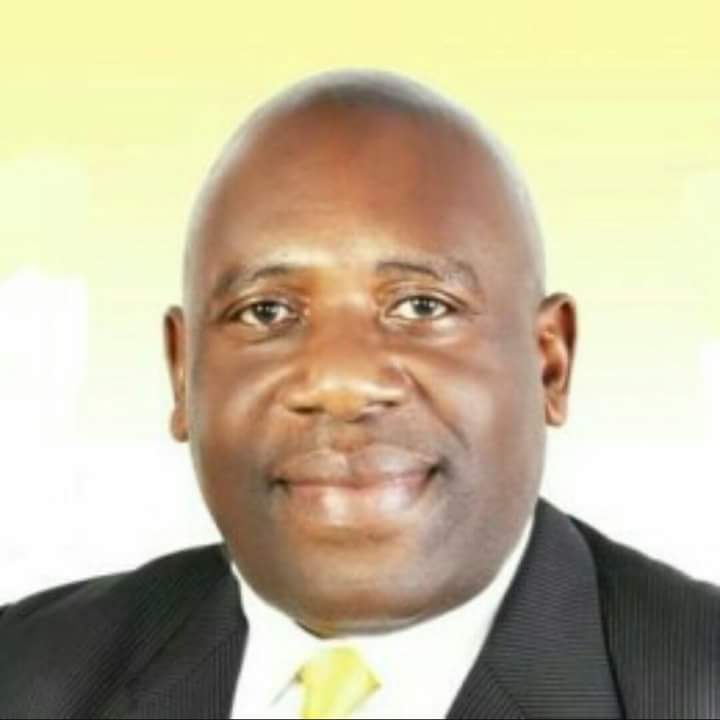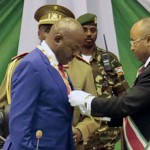Kamuli-Uganda: Former State Minister for Works, Asuman Kiyingi has joined politicians mainly from the opposition to oppose the recent amendment of the constitution. While he has no problem with the amendment that removed the age limit, he is opposed to the amendment that extended the term of the current Members of Parliament by two years up to 2023. Expanding the term of Parliament to seven years can be accepted as long as it starts with the next parliament after elections in 2021, Kiyingi contends.
The extension of tenure for elected leaders from five to seven years was smuggled into the Igara West MP Raphael Magyezi’s private member’s bill which scrapped the presidential upper and lower age limit caps. It was not in the original bill presented and gazetted neither was it discussed in the Legal and Parliamentary Affairs Committee. It was just introduced on the floor during debate which act, according to Kiyingi, violated parliamentary rules of procedure.
Kiyingi, the former Bugabula South MP says that particular amendment was illegally passed to serve the selfish interests of the current members of parliament.
“You know the thing (the provision) is so ridiculous because in law we have a principle that says that, you cannot be a judge in your own cause. The reason is simple. You are likely to be very subjective and to the detriment of other interested parties, he told Eagle Online in an interview on Sunday April 8, 2018.
If not reversed by court, this provision which attracted widespread denunciation as an illegality will allow the current elected leaders in office until 2023.
Article 1 (3) of Uganda’s Constitution states that: “All power and authority of government and its organs derive from this Constitution, which in turn derives its authority from the people who consent to be governed in accordance with this Constitution.” Kiyingi, a lawyer by profession, is basing on this article to insist that for the seven year term to take immediate effect there should have been public approval after wide consultations. Since no such consultations took place the matter should be subjected to a referendum.
Clause 4 of the same article provides: “The people shall express their will and consent on who shall govern them and how they should be governed, through regular, free and fair elections of their representatives or through referenda.”
“And I will be very shocked if our Honorable Judges of the Constitutional Court endorse such a thing because it will set a dangerous precedent. We will have actually destroyed our democracy. In future, any parliament would sit any time and extend their tenure,” he says.
Kiyingi says that if court endorses the expansion of parliament’s term to seven years it should pronounce itself clearly on when the new term starts running. This should be after general elections in 2021 because the current leaders were given a five year term by the electorate not seven.
Court to decide
Toda Monday April 9, 2018, the Constitutional Court has started hearing the petition challenging the newly enacted Age Limit Law in Mbale.
The decision of taking it to Mbale, judiciary spokesman, Solomon Muyita says, was arrived at after the Deputy Chief Justice, Justice Alfonse Owiny-Dollo meeting all the seven litigants and their lawyers. Initially, the judiciary had set April 4 as the hearing start date but they postponed to April 9, because it would be more convenient for all parties.
However, several lawyers involved in this case including the Lord Mayor, Elias Lukwago and Wandera Ogalo contested the hearing venue which Justice Dollo maintains that the Constitutional Court and its view about constitutional matters is the same irrespective of where it’s sitting, according to Muyita.
The seven litigants include; Uganda Law Society, six Opposition MPs and a one Male Mabirizi among others.
Members of the five man panel of judges hearing this matter include Dollo himself as the lead judge, Justices Remmy Kasule, Elizabeth Musoke, Kenneth Kakuru and Cheborion Barishaki.
Following the constitutional amendment, that was characterized by fist fights among the MPs who were opposed and those who were in favor, now anybody aged 18 and above can contest for presidency, a position previously ring-fenced for persons above 35 years but below 75 years of age.
The Act also extended the tenure of the current Parliament and the local government councils from five to seven years.
In the new law, which is now under challenge, among other things, parliament voted to lift presidential age limits, reinstate and entrench term limits and extend the term of Members of Parliament and local council leaders from five to seven years effective immediately.
The amendments, which among other things allowed President Museveni who has been in power since 1986 a chance to rule beyond 2021, triggered several constitutional petitions from different parties, which have clogged the already overburdened court system. They included a private citizen, Male Mabirizi Kiwanuka, six opposition Members of Parliament and Uganda Law Society under the leadership of Francis Gimara.
They are led by the leader of opposition in parliament, Winnie Kiiza (Kasese Woman), the MPs; Gerald Karuhanga Kafureeka (Ntungamo Municipality), Odur Jonathan (Erute County South), Mubarak Munyagwa (Kawempe South), Allan Ssewanyana (Makindye West) and Ssemujju Ibrahim Nganda (Kira Municipality).
The MPs and Uganda Law Society insist everything in the Constitutional (Amendment) Act 2017 is unconstitutional. President Museveni signed the amendments into law, seven days later on December 27.








